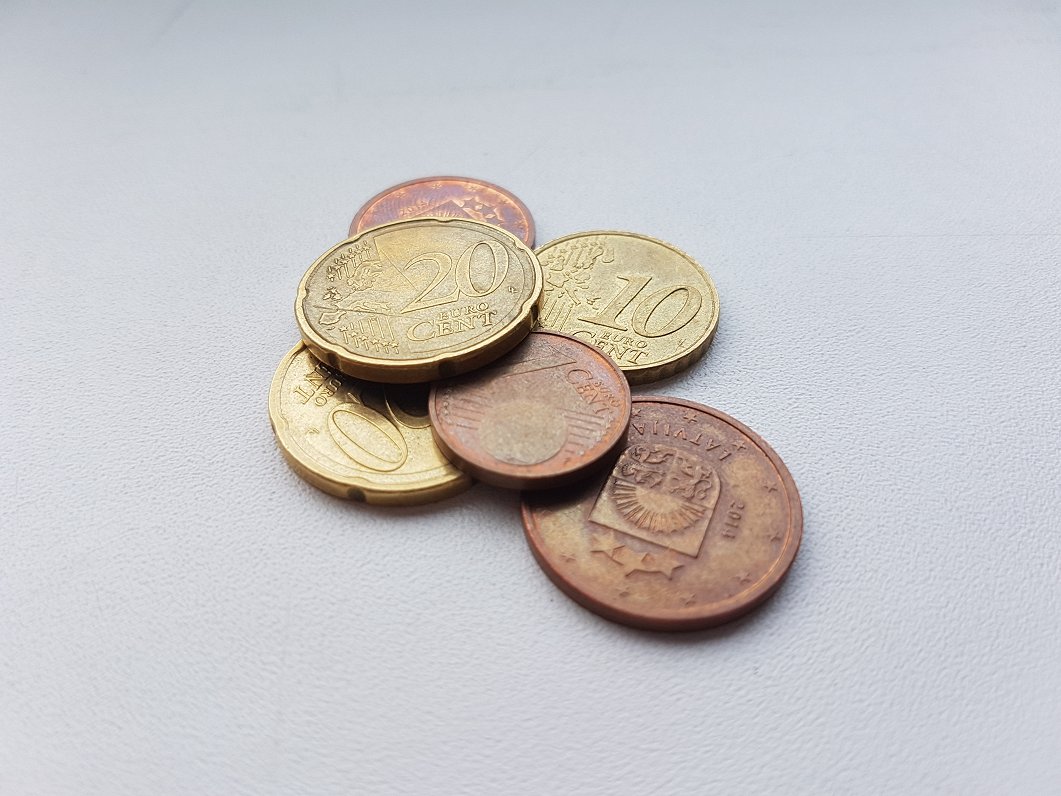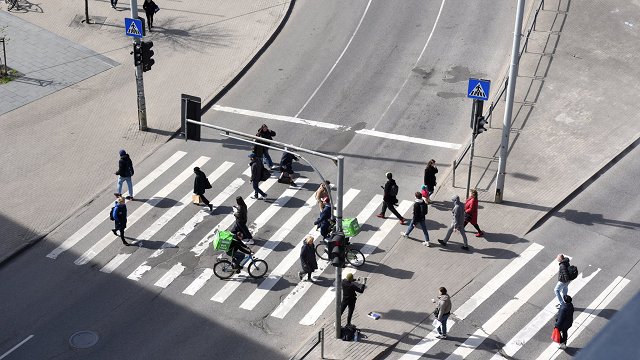In 2022, women's average gross hourly wages were 17.1% lower than men's. For every euro earned by a man, a woman received only 83 cents, concluded the "Gender Equality" publication from the CSB.
The smallest differences between women's and men's wages were for young people under the age of 25, though it was still in double digits at 11.1% and among seniors seniors over 65 (11.0%).
Gross wage gap between genders by age group in 2022
The salaries of women working part-time are 12.4% lower than those of men, while the difference between full-time working women and men reaches 20.0%. The difference between women's and men's pay also creates inequality in the amount of pensions received: in 2022, the amount of old-age pension paid to men was 11.3% higher than to women (men - 481.96 euros, women - 433.22 euros per month).
Due to inequality in wages and pensions, women are also more likely than men to be at risk of poverty. According to population survey data on income and living conditions in 2021, 25.2% of women and 19.4% of men were at risk of poverty.
This difference is also caused by the fact that there are significantly more women than men among seniors aged 65 and over. Women live nearly a decade longer than men on average in Latvia and are therefore more dependent on old-age pensions.
At the age of 65, the proportion of women at risk of poverty is significantly higher (45.6%) than that of men (30.2%). On the other hand, the proportion of women and men at risk of poverty does not differ significantly between the other age groups.
In another release, the CSB said Latvia ranks 19th in the European Union's gender equality index. LSM has previously reported on the data.
According to the gender equality index developed by the European Institute for Gender Equality (EIGE ), which characterizes the progress achieved in the field of gender equality in the European Union, Latvia's overall assessment in 2023 is 61.5, which is below the EU average (70.2 ). Lithuania has a higher rating than Latvia (64.1), but in Estonia it is lower (60.2) than in Latvia.
Since 2010, Latvia’s score has increased by 6.3 points, but since 2020, progress in Latvia has stalled (+ 0.1 points). As a result, Latvia’s ranking in the Index has fallen by three places since 2020, and currently stands at 19th place. More information: https://eige.europa.eu/gender-equality-index/2023/country/LV






























